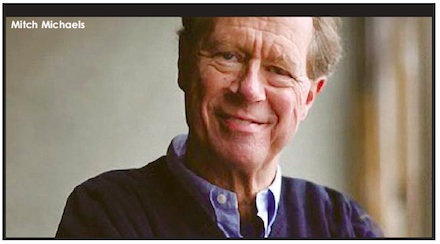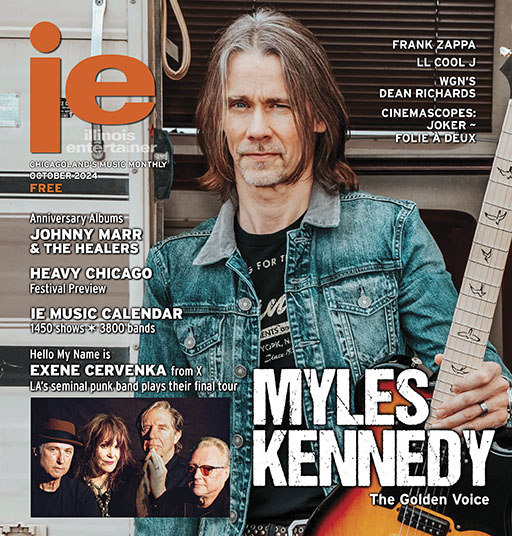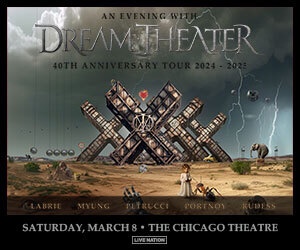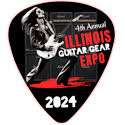Media: November 2015
When Mitch Michaels steps up to the microphone at The River (95.9 FM) every weekday afternoon at 3:00pm, he brings more with him than a good radio voice. He brings a lifetime of experience in the format and the music. Mitch hasn’t just played these tunes. He’s lived them.
“And I still love them. I really do,” Mitch admits. “The studio is right next to the general manager’s office, and when I get in there every afternoon, I crank the first few songs. He’ll poke his head in and say, ‘Hey, I can barely hear myself think!’ I say ‘Hey man, just diggin’ the tunes.”‘
Mitch has worked at virtually every rock and roll station in Chicago, including WDAI, WKQX, WLUP, and WCKG, and while some of Mitch’s stories about his radio past are legendary, some of them are hard to believe for the younger folks he meets in the radio business today. “Imagine if you will, the record is on the turntable,” he says, setting the scene, “and I’m flipping through the albums in the record racks looking for some inspiration. The song is ending, and I’m just picking out my next tune. What am I gonna play next? That’s how it was at WXRT, and that’s something that is completely foreign to some of the younger people in radio. Imagine being able to play absolutely anything across all different formats – Coltrane, Miles Davis, Jimi Hendrix – Band of Gypsies, Stones. You had the entire spectrum of music.” That was in 1972, but Mitch was on the radio in Chicago even before that. He was on the FM dial when radio didn’t have any rules.
“That’s not totally true,” he corrects. “At WGLD we had to play something from one of the top 30 albums twice an hour. That was it. Now think about what was out in 1971. We’re talking albums like Who’s Next, Led Zeppelin IV, and Every Picture Tells a Story. Oh no, do I really have to play that? (Laughs). I still think 1971 was the greatest year in the history of rock and roll. Anyway, one night I was doing 7 to midnight and I had a buddy in the studio and I was playing a song by Buffy St. Marie, an anti-war song called ‘Moratorium’. And I was by the record racks trying to find something to play after Buffy, and I said to my buddy ‘Hang on. I gotta listen for a second because I have to edit this song – she says ‘Fuck the War’ and just as I’m saying that, Buffy says ‘Fuck the War’. Oh well. What are you gonna do? Shit happens.”‘
Mitch’s heyday was undoubtedly during the incredible early years of the Loop. For people who weren’t around when the Loop took off, while Mitch was “doing the cruise” every afternoon, it’s hard to understand just how huge it was. “It was a magical, mystical circumstance,” he attempts to explain. “Those first few months we just exploded. I lived in Oak Park at the time, and I’ll never forget one day on my way into the station, I was cranking the Loop. I turned it down at the stoplight, but I still heard the station. The car next to me was playing it. The car on the other side was listening to the Loop. Everyone was. We were everywhere. Those black t-shirts were part of it. The logo. The promotions. The incredible Lorelei commercials. The music was great. It just all meshed and hit. You couldn’t go anywhere without seeing a Loop t-shirt. Disco Demolition was probably the greatest radio promotion ever. The Sox weren’t drawing. I remember sitting in the GM’s office with Jesse Bullett, and Jeff Schwartz, and Mike Veeck. We all wrote a number on the board predicting how many people this promotion would draw. I think the biggest guess was 27,000. Because of those projections, Veeck didn’t have nearly enough security, and it was crazy. That exploded the station even more.”
Surprisingly, however, the Loop wasn’t Mitch’s favorite radio stop. That was WCKG, where he worked for many years after leaving the Loop. “Tim Sabean was my PD at WCKG, and it was such a pleasure to work for him. He talked about something called ‘stationality’. That means – the vibe at the whole station, in the halls, in the offices, in the studio, everywhere. Stationality makes people want to be there. ‘CKG was so fun, we’d want to hang out there even when we weren’t working.”
Mitch’s cruise since then has been a bumpy one, and he has encountered more than his share of difficulties and tragedies, including the recent death of his son. But through it all, he says he has learned some valuable lessons.
“One thing I’ve learned is to appreciate what I have. Appreciate what I’m doing. It puts a smile on my face every day, and hopefully I’m putting smiles on other people’s faces too. I love walking up and down the halls, messing with people, and goofing around with my co-workers. This is it, man. This is a great place to work. I realize that radio is a strange way to make a living. You’re sitting in a room by yourself, talking into this elongated thing, wondering if anyone is out there. There were a few years there that I wasn’t in radio and I learned something very important about myself. I suck at everything else. This is what I do.””
And Mitch does it every weekday afternoon from 3:00-7:00pm on The River, 95.9FM.
drive.
-Rick Kaempfer














